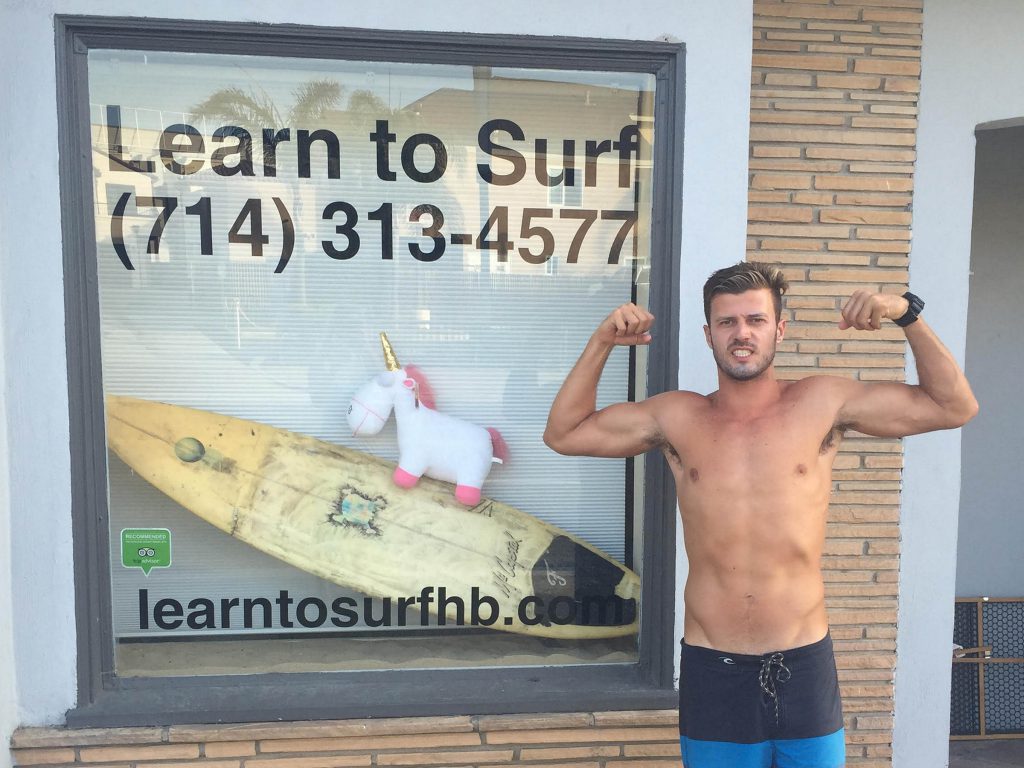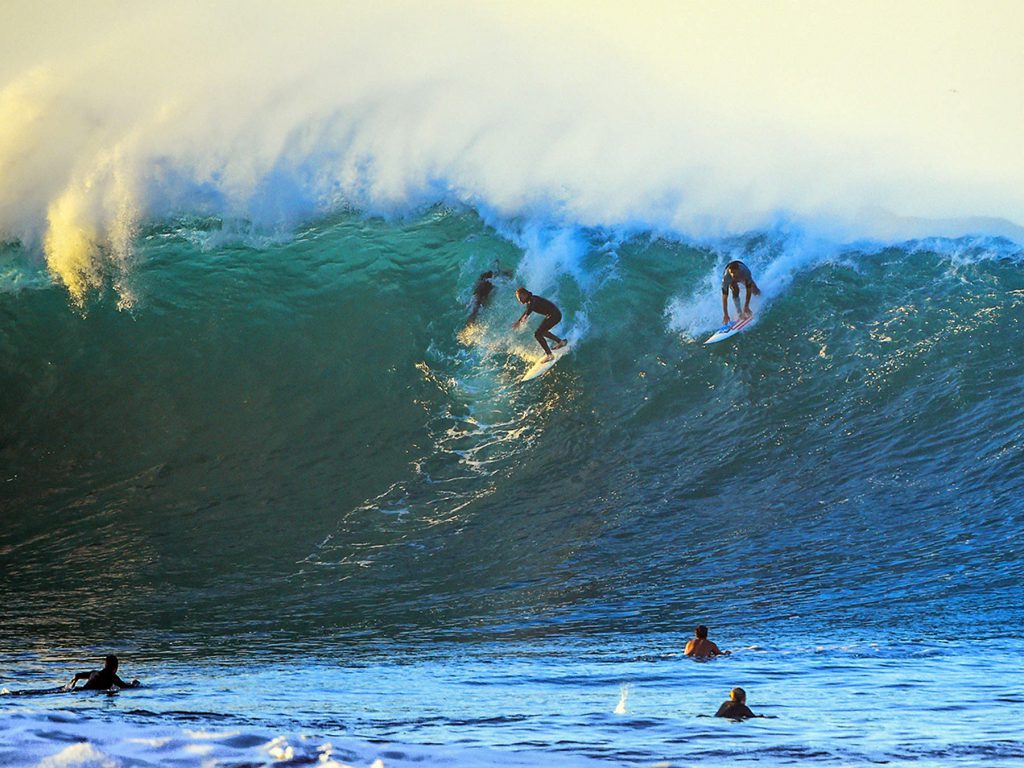A Navy veteran operating a local surf lesson business says Newport Beach unfairly regulates enterprise on the waves by contracting a select group of operators to teach both residents and visitors.
Jason Murchison, founder of Learn to Surf, is a lifelong surfer who caught his first wave at Salt Creek in Laguna Beach. He served in the U.S. Navy for two years, completing the coursework to become an explosive ordinance disposal diver.
Murchison aspired to become a Navy SEAL and was a member of Basic Underwater Demolition/SEAL class 287. That grueling career path didn’t pan out and he went on to earn his juris doctorate from the Orange-based Pacific West College of Law and is studying for the California Bar exam.

— Photo courtesy of Jason Murchison ©
Murchison incorporated Learn to Surf LLC in October 2016 after a brief stint teaching under Jaz Kaner at Banzai Surf School.
“You don’t need a license to surf,” Murchison said. “Suddenly, when someone goes with you, the city has this huge problem with it and I don’t think it’s going to end until light is brought on this issue.”
Newport Beach has tried to stamp out so-called “pirate” surf instructors for at least 14 years. The city’s Recreation and Senior Services Department contracts surfing lessons for residents and visitors to three companies: Erik Nelsen Surf Camps, Newport Surf Camp, and Endless Sun Surf School. In exchange for being under the city umbrella, these companies pay a percentage of their revenue to the city coffers.
Assistant City Attorney Yolanda Summerhill said Newport Beach believes it’s appropriate for city officials to regulate where it is and isn’t OK for recreational activities to occur in its jurisdiction.
“[We are] ensuring public safety while also ensuring we have enough business to meet public demand,” Summerhill said.
In July 2016, Murchison was arrested on suspicion of two misdemeanor charges for resisting a peace officer and obstructing/intimidating a business or customers, according to court records. He pleaded not guilty to the business obstruction charge that November and the case was dismissed in August 2017.
On the day of the incident, Huntington Beach state park rangers approached Murchison as he handed out flyers to visitors about a competitor’s business practices, he said. The rangers stopped Murchison and said he was under arrest.
“I stopped, he said I was resisting,” Murchison said. “I was not.”
Murchison was handcuffed, put in the back of a squad car, and detained for a short period before being released from custody, he said.
Murchison said he reluctantly provided his DNA to prosecutors to resolve the case.
In November 2016 Newport Beach slapped Murchison with a civil lawsuit for “the creation and maintenance of a public nuisance” by allegedly offering surf instruction and related activities for compensation with required licenses and permits, according to court documents.
Murchison fought Newport Beach’s outside counsel in Orange County Superior Court for nearly a year before settling. He agreed to pay more than $19,000 in city legal fees, obtain and maintain a Newport Beach business license, and relocate a drop pin location on his website outside of city jurisdiction.
Learn to Surf LLC has an active Newport Beach business license issued on July 25, according to city records.

— NB Indy file photo by Larry Sherwin ©
Murchison and his business partners provide an average of 2,000 surfing lessons per year. A lesson can between 1 and 10 people. Most of his clients are tourists visiting Newport Beach.
Murchison suspects that other non-contract surf lesson companies in Newport Beach haven’t been as successful and that’s why the city targeted him over others.
“They’re trying to make an example out of me,” he said.
On its face, the idea of a Republican stronghold such as Newport Beach coming down on a small business owner for using a natural resource might seem odd. But the act of balancing coastal access for the general public and entrepreneurs is a delicate matter.
The California Coastal Commission is charged under the California Coastal Act with safeguarding coastal access to the public, including surfers.
“Neither the Commission nor local governments can regulate private activities on public beaches unless there are impacts to coastal resources,” Coastal Commission spokesperson Noaki Schwartz wrote in an email. “If these operators are not setting up infrastructure, we don’t see any impacts to coastal resources.”
Murchison says he doesn’t even erect temporary tents or tables during working hours.
Keith Coleman, co-owner of Cork Caroll’s Surf School, said pirate surf schools are a major issue for operators who pay for insurance, conduct background checks, and certify employees in First Aid and CPR. As a practical matter, it can get chaotic when students of more than one surf school are vying for the same waves.
“When you go to operate, on the safety side of things, you can’t just be working on top of each other,” Coleman said.
City governments must also guarantee space the general public to safely surf, Coleman said.
“If there is a surf school between every jetty, where does the public go to surf?” he said. “There’s only so much room that they can allot for these things.”
Murchison said there is more than enough beach for surf lesson companies and the public to simultaneously enjoy the ocean. He also pointed out that his company carries a $1 million insurance policy.
“It’s just a sad occurrence that is happening in this city that literally has nothing better to do,” Murchison said.
For more information, visit learntosurfhb.com.




